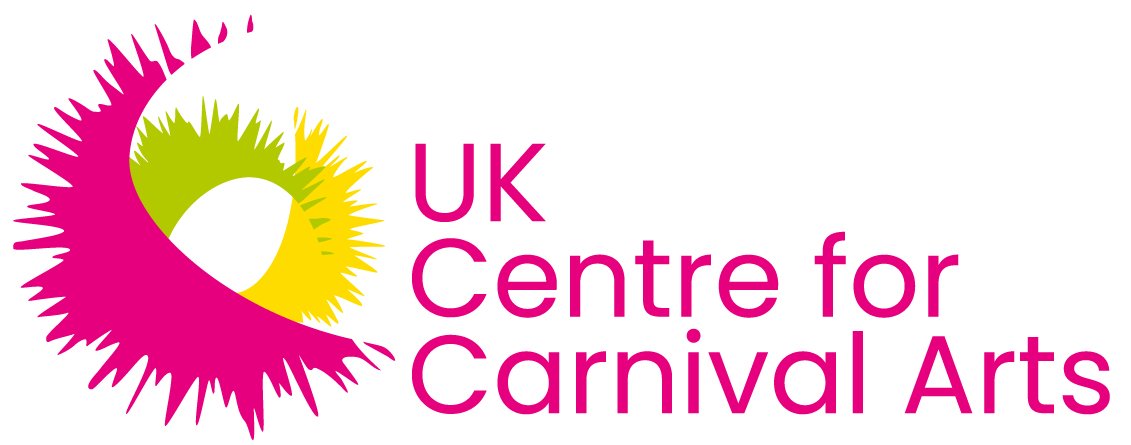Recommendations
Introduction
In 2023, with the support of the Greener Future Fund through the Bedfordshire and Luton Community Foundation, we embarked on a journey to reduce Luton Carnival’s CO2 emissions. This research document details our comprehensive efforts and findings in promoting sustainability across various aspects of carnival preparation and execution. The document outlines our approach to incorporating eco-friendly materials into carnival costumes, evaluating traditional and alternative materials, and implementing sustainable practices.
Our initiative began with an exploration of sustainable materials for carnival costumes. Historically celebrated for their vibrant colours and intricate designs, carnival costumes often rely on conventional materials that raise environmental concerns. Recognizing this, we shifted towards using upcycled fabrics and biodegradable embellishments. This transition not only supports global sustainability efforts but also maintains the cultural vibrancy and creativity of our celebrations.
We conducted a thorough materials analysis, examining key substances like PVA glue, contact glue, paper, cardboard, and foam. Our goal was to assess their environmental impact and explore sustainable alternatives that match performance and affordability. This analysis was crucial in identifying materials that align with our sustainability goals while ensuring the integrity of our costumes and floats.
Sustainable arts education emerged as a core component of our initiative. Through masterclasses, pilot programs, and community engagement, we fostered a new generation of environmentally conscious artists. These educational efforts were pivotal in promoting sustainability and creativity within the community.
In our quest for net-zero floats, we trialled alternatives to diesel-powered trucks, including push floats and, in partnership with Luton Borough Council, cycle-powered floats, and e-cargo bikes. These efforts significantly reduced emissions and showcased innovative approaches to sustainable parade logistics.
The outcomes of these initiatives were promising, resulting in notable CO2 reductions and positive feedback from participants.
The development and implementation of a robust Green Policy, informed by this project’s findings and resources from Art’s Council of England’s Julie’s Bicycle, was crucial in ensuring the long-term sustainability of Luton Carnival and setting a precedent for eco-friendly cultural celebrations.
Recommendations
This research and development project involved extensive efforts to promote sustainability in all aspects of the carnival's preparation and delivery. Based on our findings, here are our recommendations:
Enhance Reuse and Recycling Practices: Strengthen efforts to repurpose materials and incorporate recycled items into costume and float construction.
Monitor Developments of Low-VOC and Non-VOC Alternatives: Periodically research and test environmentally friendly adhesives and paints to replace traditional, more harmful products.
Promote Traditional Practices: Revive traditional methods such as willow lantern making, paper mâché and use of natural materials to reduce reliance on synthetic materials.
Implement Green Float Solutions: Transition from diesel-powered trucks to 100% push floats, cycle-powered floats, and e-cargo bikes to reduce emissions.
Increase Community Involvement: Engage local businesses and communities in sourcing materials, sponsoring floats, and participating in green initiatives.
Strengthen Arts Sector Involvement: Identify further learning, training and collaboration opportunities with UK Carnivals, other outdoor artists and festivals for the development of best practice, return to traditional methods and innovation of new technologies.
Continue to Pilot Sustainable Technologies: Test new sustainable technologies, such as plant-based foams and eco-friendly sound systems, and share findings with the broader carnival community.
Expand Sustainable Arts Education: Develop and promote educational programs focused on sustainability in the arts, targeting both children and professional artists.
Utilise Climate Tools: Regularly use carbon calculators like the Creative Green Tools to measure and manage CO2e emissions effectively.
Monitor and Report Progress: Document and evaluate the environmental impact of carnival practices annually to identify areas for improvement and celebrate successes in reducing CO2 emissions.
Environmental Policy: Regularly review and update the newly implemented Environmental and Sustainability Policy 2024-2030 to ensure that UKCCA maintains momentum in continuous learning and development. This process will help identify and create opportunities for organisational growth and improvement.

